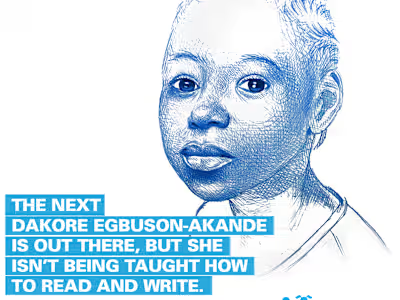Executive Summary Excerpt - Market Research for Startup
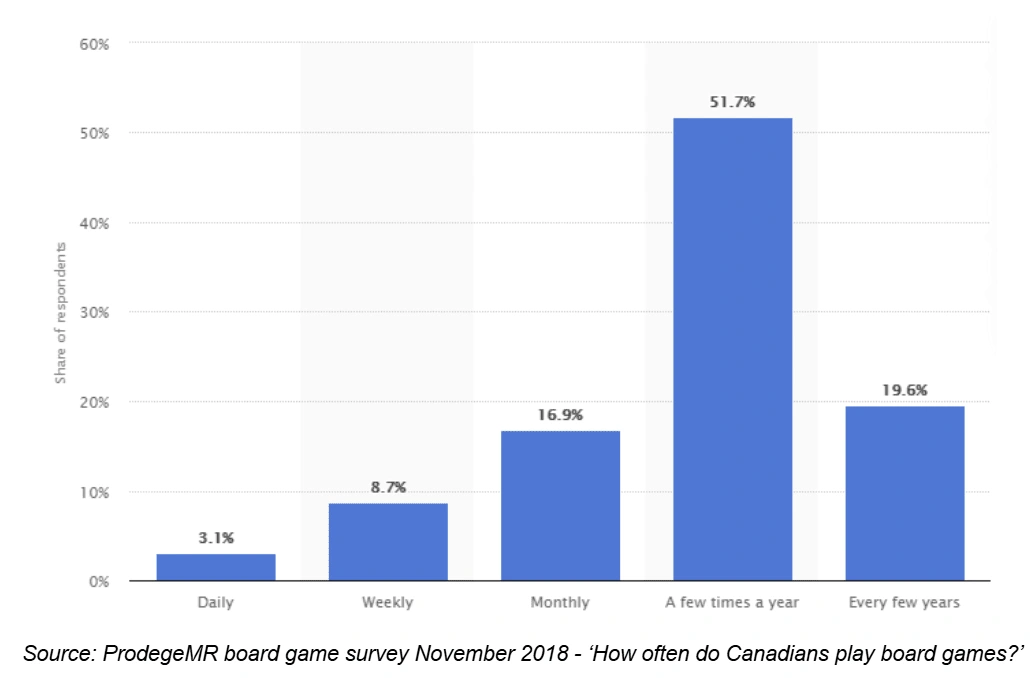
Executive Summary
Globally, the board market is at the boom stage of its lifecycle and this is reflected in sales and demand trends in major countries across the world including Canada. This trend is also reflected at different levels for the different types of games - RPGs, Card, Dice games, Tabletop board games. In addition to the general boom, this is also a period of growth for small and newer entrants into the board game markets. While classic games continue to retain their nostalgic allure and dominate the best-selling top lists, newer games are also doing quite well with dedicated followers offline, online & via physical social platforms such as cafes & conventions (which have seen an explosion in growth from 2015 to 2020).
Traditional distribution channels are also being disrupted by strategic distribution strategies of the industry’s main & mid players as they emphasize adapting overall marketing & operations strategy to the habits of the millennial users who currently show the highest rate of growth. This skew towards new strategies that favour online based engagement & distribution has been further driven by the COVID-19 pandemic which saw decreases in physical retail sales globally while online sales increased. Supply chain restrictions during the pandemic, especially due to the market’s dependence on Chinese production, affected the industry’s ability to produce games in line with the level of demand.
While the unique trends of 2020 are likely to evolve post-pandemic, the data suggests that there will be lasting changes to buying behaviour including new audiences reached online that will continue to purchase games online and previous retail & specialty store purchaser who have found online based communities that mimic the unique advantages of buying games physically from a specialty or hobby store. Some game publishers & manufacturers provide platforms for such communities on their online platforms as part of their business model & strategies for gaining publicity, organically advertising new games and nurturing lasting relationships with followers & customers. Other innovations such as the increase in free print-at-home options from both large and small market players are also likely to continue to change both demand and supply trends in the market.
The research shows a major theme influencing sales for the most successful board game brands - an emphasis on tying content and games to digital, video gaming, films & TV. This echoes the general complexity of leisure & play in today’s world where young people need to be engaged across various channels to maintain interest. Managing a board game brand no longer solely relates to the physical activity of playing the game but is fed by and extended by the evolution in technology trends that characterize media & leisure landscapes globally. This has made licensing a major source of income for toy and game companies in the past decade as partnerships with film and animation franchises to create exclusive merchandise has the biggest effect on the company's bottom line.
Game sales in the past few years also show a clear correlation between the speed to market for a game created in response to a trend and successful sales, especially for sales to the Millennial & Generation Z market. A common trend across companies, big & small, is the optimization of the creation process to enable development times of as low as 2 months compared to averages of about 18 months in the years prior to 2015. UNO is a great recent example of this, as the brand released its new sleek version of the game - UNO Minimilista - in 2020 after a development period of 30 days from inception to release. This is a time of innovation in the gaming world with well over 4000 new games published per year.
Given the sheer number of players and game releases in the market, innovative approaches to standing out from the crowd have become an essential ingredient for making a mark on the industry. The custom board game market is relatively small and delivers solutions to a number of problems identified in the board game market including challenges with deciding which games to buy in the face of so much choice and adapting to retail preferences in a world where consumers are increasingly seeking to cut out the frills and buy products that meet their exact needs.
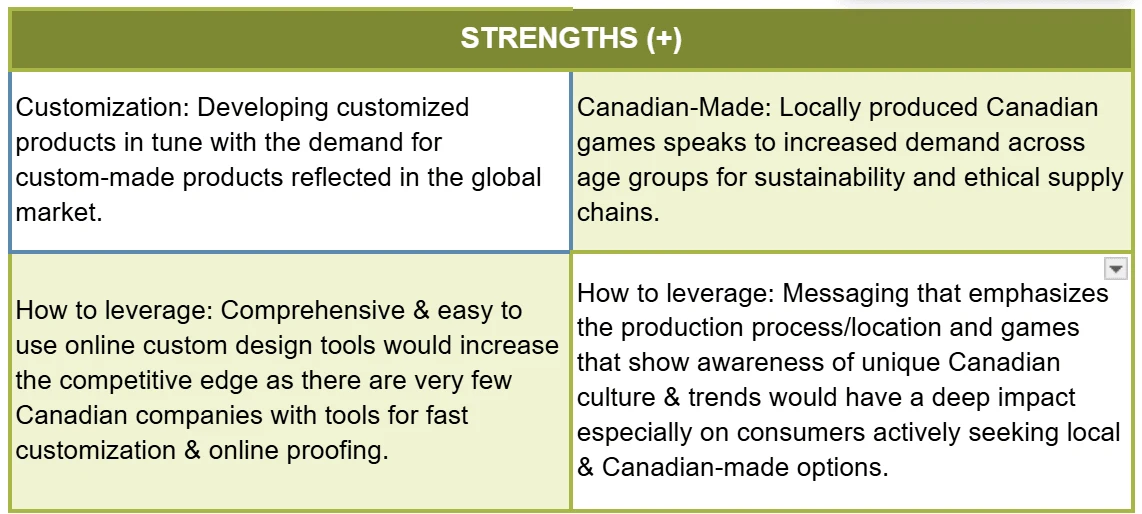
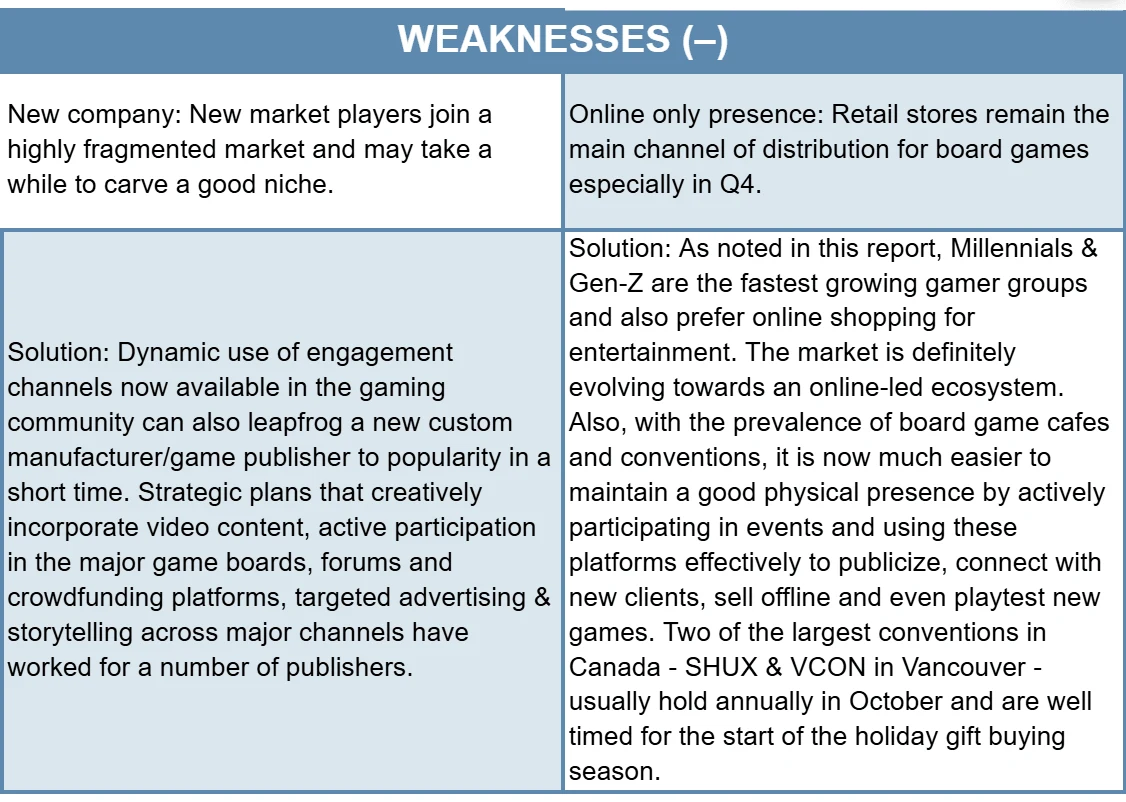
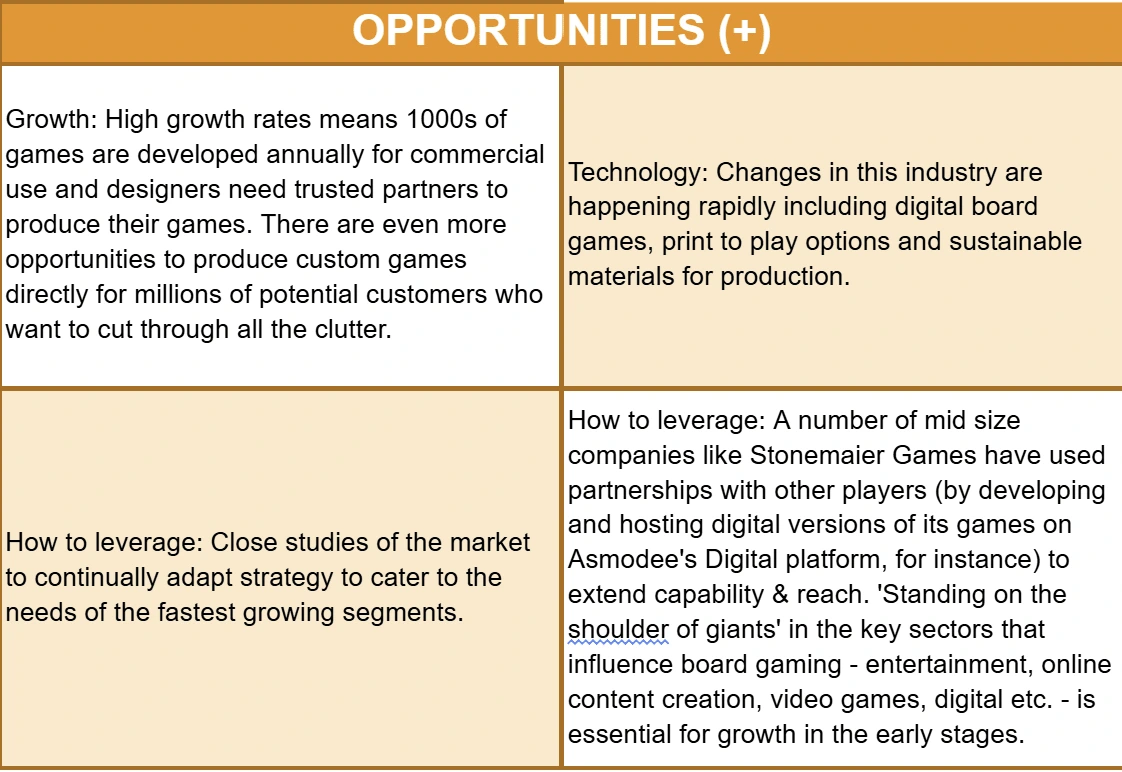
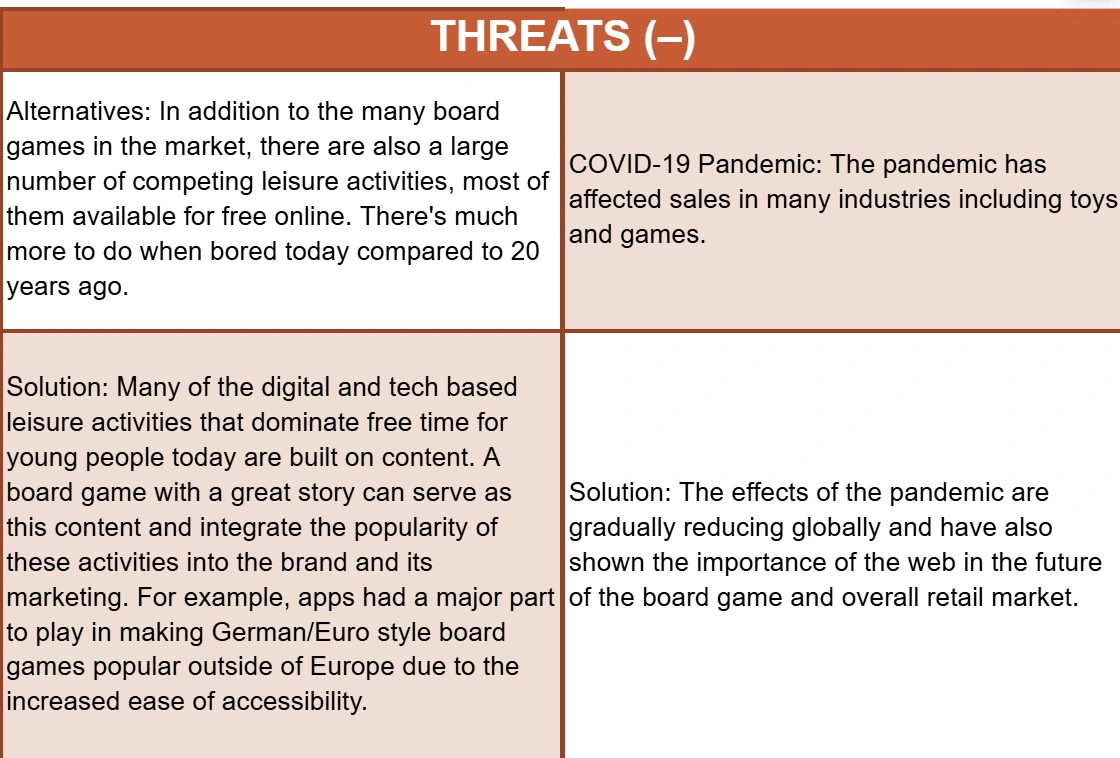
Like this project
Posted Jan 4, 2025
Research report including market sizing, competitive & audience analysis that informed developing the follow-up business plan for a gaming startup.






